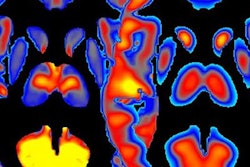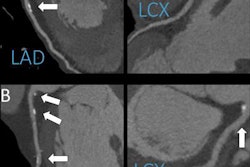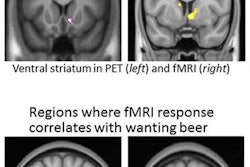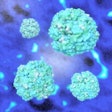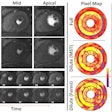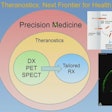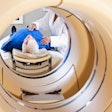PET/CT imaging has revealed adaptations in the brains of recovering alcoholics that help them resist relapse, according to research presented at the 2016 Society of Nuclear Medicine and Molecular Imaging (SNMMI) meeting in San Diego.
The research could lead to new targeted drugs that limit receptor activity in patients who lack this adaptation or are otherwise at increased risk of returning to alcohol abuse, said the team from University Hospital Gasthuisberg in Leuven, Belgium.
Senior author Dr. Koen Van Laere, PhD, and colleagues used PET/CT to image 16 recently sober patients and 32 control patients with no alcoholism in their backgrounds. They used an imaging agent called F-18 FPEB, which binds with a receptor called metabotropic glutamate receptor subtype 5 (mGluR5). The receptor is found throughout the central and peripheral nervous systems and is linked to intense cravings and addiction relapse.
When the researchers measured mGluR5 receptor binding in each patient, they found that the availability of mGluR5 was significantly reduced in the recovering alcoholic patients, due to brain adaptations they had developed.
"[Our] findings strongly substantiate the development of mGluR5-targeted therapies that heal or protect against the dysfunctional brain circuitry that characterizes alcohol addiction," said lead author Dr. Gil Leurquin-Sterk in a statement released by the SNMMI.





